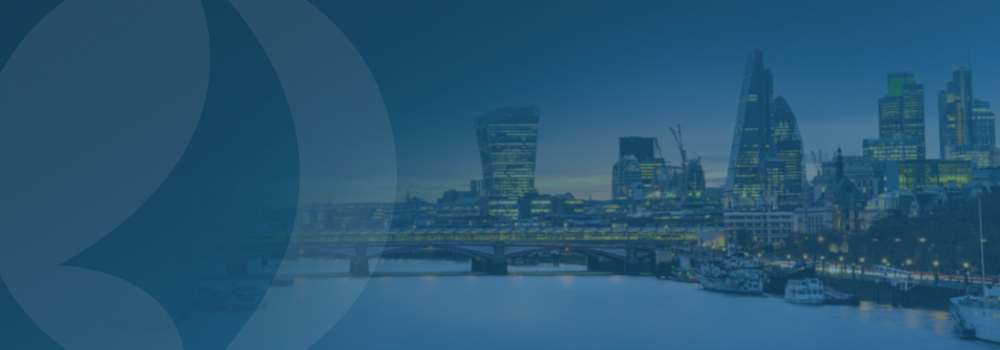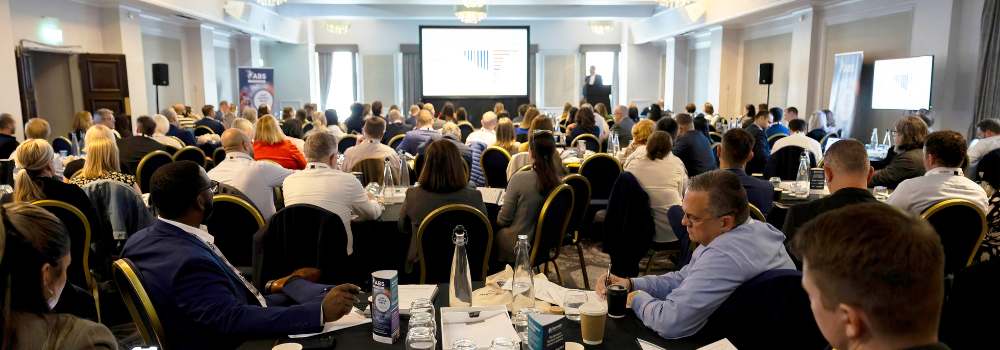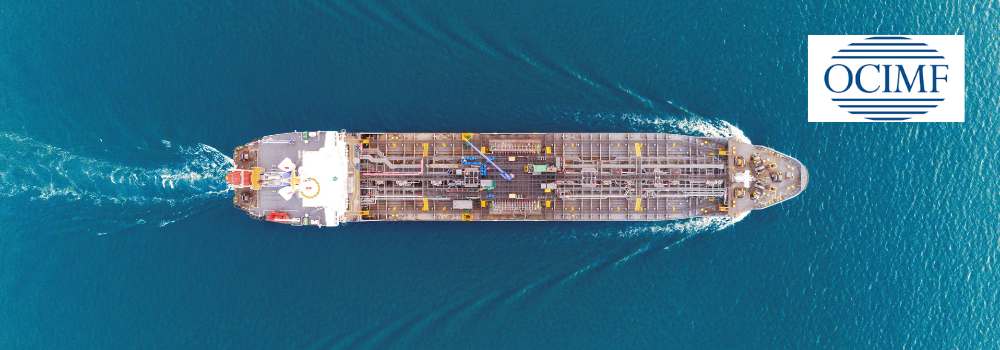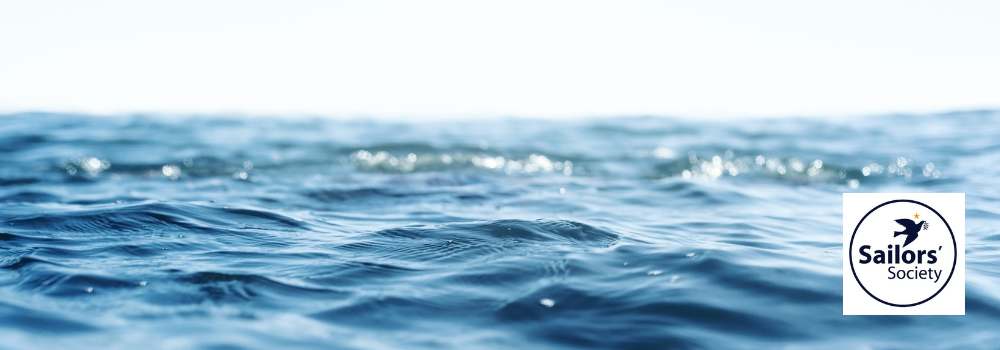We hosted our 16th annual Maritime People & Culture Conference on the 16th and 17th May 2024 at the Grand Connaught Rooms in London.
The event, chaired by Chairman Phil Parry, featured fascinating talks, presentations and panel discussions covering the key issues facing the maritime industry and how HR and leadership teams can address them.
Parry says, “We are delighted that this year’s event has had a record turnout. Delegates have travelled from all over the globe to attend and we are honoured that so many members of the maritime community have joined us. The sessions have been both informative, topical and wide ranging – from neurodiversity to decarbonisation.”
A Wrap-Up of the 2-Day Event
Maritime Economics – An engaging session looking at the shipping market outlook from a standpoint of managing disruption and going green. This session covered the market cycle position, seaborn trade, fleet development, sector trends, green fuelling and maritime decarbonisation. Did you know, the Suez Canal is around 10% of global trade?
The Power of Personality – An insightful session by Daniel Taylor covering everything from the Greek history of personality to how we now in the 21st century understand our own personality. We looked at the tool Facet5, how it works, that they are indicators, not measures, what your personality can mean for the workplace and the risks and awareness surrounding your personality traits.
Neurodiversity – Heidi Watson let us in on the knowledge that more than 15-20% of people over the world are neurodivergent. We were shown that there are ways you can alter and adapt your workplace to accommodate neurodivergent people, such as, looking at your recruitment strategy, thinking about how you can support them such as an open work culture, work schedule changes and more.
DE&I Backlash: Now what? – “If you do not bring everyone on the bus with you, you become the monster you have fought against” was the resonating point Njsane Courtney made during his presentation. This was a thought-provoking session that got everyone thinking, what are we doing in the workplace in regard to DE&I Policies, are we doing enough?
Charting Life Transitions – A heartfelt session from Torid Boe taking us through her life experiences with perimenopause and how we can prevent midlife derailing work life. We were shown the Three C approach to approach these still taboo topics in the workplace; Conversation, Coding and Cultivating Support.
Unlocking the Power – A session on the female element in security, Anne Gry took us through her own experiences working within security as well as what a female in security can bring to your workplace, driven innovation, creativity and critical thinking, and an interesting point that women have an 82% higher score in honesty and integrity than men.
Can Shipping Decarbonise? – By the end of the session the simple answer from Mark Williams was yes, it can but, at the moment we have phase 1 and phase 3 sorted, we are just missing the middle bit, the phase 2, the how do we get there. Shipping has never decarbonised before, so how do we know what to do when we have nothing to refer to?
The Art and Science of Communication – Tim Brown taught the room that the language we use has a huge impact on a person’s state. As humans we have natural filters such as deletion, distortion and generalisation so we must think, how are we to manage our communication with others as individuals?
Are we doing enough to support the well-being of seafarers? – A panel dedicated to discussing simply are we doing enough but also what are we doing from three different points of view, a charity, a coaching programme and mental health support. The general consensus was that we are doing the best we can.
You can read more about this session here.
Global Maritime Trends 2050 – Claudene Sharp-Patel ran us through an interesting session on the 2050 report from Lloyd’s Register. Looking at the What If’s, looking at trends, mapping out scenarios and delving into what if this happened.
Global Maritime Trends 2050 and Future Skills – This panel discussed how collaboration is key in training and addressing concerns of seafarers to ensure they are getting the training they need. It is a huge question mark over training as we do not know what they future will be, but this is why collaboration is more important now than ever.
Human Capital Management – Raal Harris and Nick Chubb showed us through their framework for a strategic approach to attracting, developing, managing and retaining maritime professionals at sea and ashore. The framework looks at recruitment, onboarding, learning and development, performance and retention.
Moving Minds and Elevating Skills – Caroline Baumgaertner shared the insightful ways NSB are retaining and developing their people. The simple answer is, keep the focus on the people. NSB are using systems such as being mentored and mentoring simultaneously, using AI to identify skills gap and competency work to identify issue areas.
The role of culture in attracting and retaining talent – The final session/panel of the event where we took a deep dive into the generational and geographical struggles and the differences between macro and micro culture. Thoughts such as ‘people create their own subset of culture’ and ‘Gen-Z are very open and authentic’.
You can read more about this session here.
This year we hosted a gala dinner, kindly sponsored by ABS, during which we announced the winner of the inaugural ‘Best HR Initiative’ Award.
We had invited members of the Maritime HR Association to submit an entry detailing a new HR practice, policy or initiative that they had put in place. Entries ranged from diversity programmes, improved HR systems and well-being activities.
The winner was Bernhard Schulte Shipmanagement (BSM) with Irena Kyprianidou, Evrydiki Kolokoudia and Natalie Pellenz collecting the award from Jorunn Eldoy from Mintra. Their initiative was a Female Mentorship Programme for newly joining women cadets, connecting those at sea with a shore-based mentor. The programme aims to establish a support system and a safe space.
The awards were judged by Heidi Watson, Employment Partner, Clyde & Co, the Editor of TradeWinds, Julian Bray and Chairman of Spinnaker, Phil Parry.
They commented “BSM deserve our congratulations for these initiatives which capture the spirit of how supporting and investing in people pays dividends that go beyond financial returns. These programmes are an example of the kind of vision we need in maritime to drive and encourage diversity, inclusion and safety.”
BSM said about winning the awards “Thanks a lot for the great conference and for honouring us with the first Spinnaker Best HR Initiative Award.”
There were 3 runners up including Navigator Gas with Coffee Roulette, an internal networking initiative to match up colleagues who don’t usually work together to go for a coffee and a walk.
Also, runners up were Pacific Basin with their enhanced maternity package available in all offices. Pacific Basin said “This initiative is a testament to our commitment to supporting our employees through significant life events, it does not only benefit the family unit but also contributes to a more balanced and productive workforce in the long run. It is an investment in our future generations and the overall health of our society.”
Teekay’s 50 years, 50 stories was the final runner-up. Their entry celebrates fascinating, interesting and light-hearted stories within Teekay to celebrate their 50th anniversary.
Want to hear what our delegates have to say? Take a look here.




